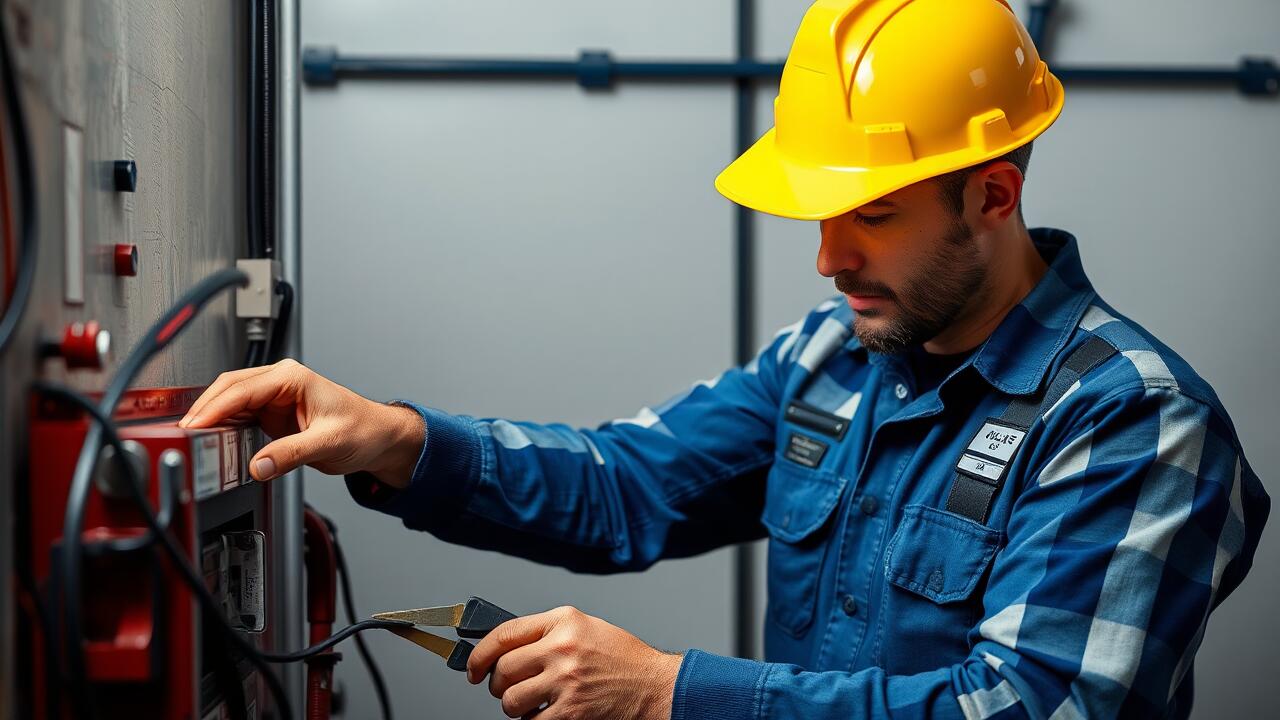
Understanding Solar Incentives and Tax Credits
Incentives and tax credits significantly enhance the financial appeal of solar energy installations. Homeowners can take advantage of federal, state, and local programs that reduce the upfront costs of solar panel systems. The federal Solar Investment Tax Credit (ITC) allows individuals to deduct a substantial percentage from their federal taxes for solar install costs. This incentive remains available for a limited time, encouraging many to invest in renewable energy solutions.
Additionally, local utilities sometimes offer rebates for solar installation, further lowering costs. An electrician in Gulfton, Houston, can provide guidance on eligibility for these financial incentives and help navigate the application process. Educating homeowners about available tax credits and local programs enhances awareness and supports the transitioning to solar energy as a viable option.
Financial Benefits for Homeowners
Homeowners have much to gain from installing solar panels beyond environmental benefits. By reducing dependency on the grid, they can see significant savings on monthly electricity bills. Many states offer rebates and incentives that can lower the overall installation costs. Additionally, solar panel systems can increase property value, making them an attractive investment for those looking to sell their homes in the future. Choosing a reputable service provider can help navigate these options effectively.
Hiring a qualified electrician in Spring Branch West, Houston, ensures that installations are carried out efficiently and safely. Professional services not only enhance the system's performance but also guarantee compliance with local regulations. The long-term financial benefits, combined with the potential for energy independence, make solar energy an appealing choice for homeowners. Installation can be a smooth process with the right expertise, paving the way for immediate savings and ongoing economic advantages.
Common Myths About Solar Energy
Many homeowners still harbor misconceptions about solar energy’s efficiency and reliability. One common myth is that solar panels are ineffective in cloudy or rainy weather. In reality, solar panels can still generate electricity even in less than optimal weather conditions. They work by capturing diffused sunlight, making them functional regardless of direct sun exposure. An electrician in Kingwood, Houston, can help demonstrate the effectiveness of solar energy systems under various environmental conditions.
Another prevalent belief is that solar energy is prohibitively expensive for average homeowners. While the initial investment can seem daunting, the long-term savings on energy bills combined with available incentives make solar energy financially viable. Many families find that the increase in home value and the reduction in monthly utility costs offset the upfront installation expenses. Consulting with a qualified electrician in Kingwood, Houston, can provide a clearer understanding of the potential financial benefits.
Debunking Misconceptions
Many people believe that solar panels are only effective in sunny climates. This misconception overlooks advancements in solar technology that allow panels to capture energy even in overcast or rainy conditions. Solar energy systems work by converting both direct sunlight and diffuse light, ensuring that homeowners can benefit from renewable energy regardless of geographic location or weather patterns. The effectiveness of solar panels is further enhanced by their ability to generate electricity during the peak sun hours, often leading to substantial savings on energy bills.
Another common misunderstanding is the belief that installing solar panels is too expensive for the average homeowner. While the initial investment can be significant, various incentives, tax credits, and financing options make solar energy more accessible than ever. Homeowners can partner with local experts and electricians, such as an electrician in Bellaire Junction, Houston, to explore tailored solutions that fit their budget. The long-term savings on energy costs and the added value to the property often outweigh the initial expenses, making solar a smart financial choice in the long run.
Solar Energy and Environmental Impact
The transition to solar energy plays a significant role in reducing the overall carbon footprint associated with traditional energy sources. Harnessing the power of the sun provides a cleaner alternative that limits greenhouse gas emissions. By utilizing solar panels, homeowners can contribute to a decrease in air pollution and promote environmental sustainability. Each solar installation effectively cuts reliance on fossil fuels, leading to a smaller environmental impact.
Choosing solar energy not only benefits the planet but also enhances local economies. As installations increase, the demand for skilled labor in fields such as installation and maintenance grows. For instance, an Electrician in Houston can find new opportunities in this expanding market. Additionally, homeowners who opt for solar power can see potential savings on energy bills, creating a win-win situation for both individual households and the community at large.
How Solar Power Reduces Carbon Footprint
Solar power significantly reduces carbon footprint by providing a clean and renewable source of energy. When homes and businesses switch to solar, they decrease reliance on fossil fuels, which are major contributors to greenhouse gas emissions. Solar panels harness sunlight to generate electricity, resulting in minimal carbon emissions compared to conventional energy sources. By adopting solar technology, individuals actively participate in the fight against climate change.
Local professionals, like an electrician in West University Place, Houston, play a vital role in promoting solar energy installations. Their expertise ensures that solar systems are installed efficiently, maximizing energy production while minimizing potential issues. Moreover, as more households opt for solar power, the collective impact contributes to a cleaner environment and a sustainable future, emphasizing the importance of community involvement in renewable energy initiatives.
FAQS
What are the main financial benefits of installing solar panels?
The main financial benefits include reduced electricity bills, potential tax credits and incentives, increased home value, and the opportunity to sell excess energy back to the grid.
How can I find out if I qualify for solar incentives and tax credits?
You can check with your local government or utility company for specific programs available in your area, or consult with a solar installation provider who can guide you through the eligibility requirements.
What are some common misconceptions about solar energy?
Common misconceptions include the belief that solar panels are too expensive, that they don't work in cloudy or cold climates, and that they require a lot of maintenance.
How does solar power contribute to reducing my carbon footprint?
Solar power generates clean energy without emitting greenhouse gases, which helps to decrease overall carbon emissions and combat climate change, making it a more sustainable energy choice.
Is solar panel installation a complicated process?
While the installation process can vary in complexity, reputable solar installation companies typically handle all aspects of the installation, ensuring it is done efficiently and correctly, while providing you with guidance throughout.




